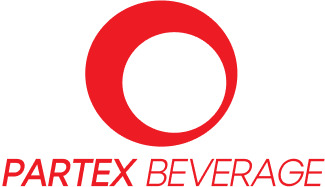

Strategic SAP Implementation for Retail Industry

State the goal: Convert client’s retail business processes from Oracle to SAP S/4HANA, enabling them to leverage the latest capabilities of SAP’s next-generation ERP system for improved efficiency and omnichannel management.


Outcome
Benifits of Using SAPmax
Successful SAP S/4 transformation from a different legacy system, showcasing your company’s ability to handle complex data migrations and integrate with existing retail technologies.
01.Flexible workforce for project adaptability: Your team can adjust to changing needs and unforeseen circumstances throughout the project lifecycle.
02.Timely task completion: Your team ensures that project milestones are met on schedule and within budget.
03.Phased go-live for minimized disruption: A phased approach to implementation can help minimize disruption to the client’s retail operations.
04.Cost-effective implementation: Your company delivers value by focusing on efficient resource allocation and cost optimization throughout the project.
05.Extended post-implementation support: Your ongoing support ensures the client gets the most out of their SAP S/4HANA investment and helps them address any challenges that may arise after go-live, including ongoing system optimization for improved retail performance.
01.Flexible workforce for project adaptability: Your team can adjust to changing needs and unforeseen circumstances throughout the project lifecycle.
02.Timely task completion: Your team ensures that project milestones are met on schedule and within budget.
03.Phased go-live for minimized disruption: A phased approach to implementation can help minimize disruption to the client’s retail operations.
04.Cost-effective implementation: Your company delivers value by focusing on efficient resource allocation and cost optimization throughout the project.
05.Extended post-implementation support: Your ongoing support ensures the client gets the most out of their SAP S/4HANA investment and helps them address any challenges that may arise after go-live, including ongoing system optimization for improved retail performance.

Challenges
Overcoming Obstacles with Innovative SAP Solutions
01.Data volume and migration complexities, particularly for large product catalogs and customer databases.
02.Integration challenges with existing retail-specific systems (e.g., Point-of-Sale) to ensure seamless data flow and omnichannel experiences.
03.Ensuring accurate inventory management during data migration and system transition to minimize stock discrepancies.
04.Managing rapid changes (delta changes) with a strategic workforce. Having a team with the flexibility and expertise to adapt to evolving retail trends and new business needs throughout the implementation process.
02.Integration challenges with existing retail-specific systems (e.g., Point-of-Sale) to ensure seamless data flow and omnichannel experiences.
03.Ensuring accurate inventory management during data migration and system transition to minimize stock discrepancies.
04.Managing rapid changes (delta changes) with a strategic workforce. Having a team with the flexibility and expertise to adapt to evolving retail trends and new business needs throughout the implementation process.
Solution
Driving Success with Tailored SAP Solutions
As the business is attached to multiple outbound processes with various custom APIs, it was necessary to assess the entire business process and evaluate it as required mapping. Also to advocate the client with necessary knowledge base is one of the key parts of this assessment. We went through the few of our core steps while providing solution:
01.Assessment:
- Highlight the need to assess existing business processes due to custom integrations (e.g., e-commerce platform, Point-of-Sale systems), emphasizing the importance of understanding these integrations to ensure a smooth transition to SAP S/4HANA.
- Emphasize client education as a key part of the process. This could involve workshops, training sessions, and ongoing communication to ensure the client’s team is comfortable with the new SAP S/4HANA system and its functionalities specific to retail operations.
- Capturing and aligning business processes with SAP best practices (BAUs) for retail. This step involves documenting the client’s current processes, analyzing them against SAP’s recommended practices for retail operations, and identifying any gaps or areas for improvement in areas like inventory management, sales, and customer relationship management.
- Mapping business functions to relevant SAP S/4 features (e.g., Retail Execution for efficient store operations, Sales & Distribution for inventory and order management, Customer Relationship Management for personalized customer experiences).
- Building custom interfaces and applications based on client needs. This may involve integrating with existing systems that are not directly replaced by SAP S/4HANA, or developing new functionality to address specific requirements of the client’s retail operations (e.g., loyalty program integration).
- Data migration from Oracle to SAP S/4 using ETL (Extract, Transform, Load) tools to ensure data accuracy and completeness during the migration process, including customer data, product information, and historical sales data.
- User Acceptance Testing (UAT) and user training for a smooth transition. UAT involves simulating real-world retail scenarios to identify and address any issues with the new system before go-live. User training equips employees across departments (sales, inventory, customer service) with the skills and knowledge to effectively use SAP S/4HANA in their day-to-day tasks.
- Post-go-live support to minimize business risks. This includes providing ongoing assistance to users, monitoring system performance, and addressing any issues that may arise after the system goes live.
Other Success Stories


